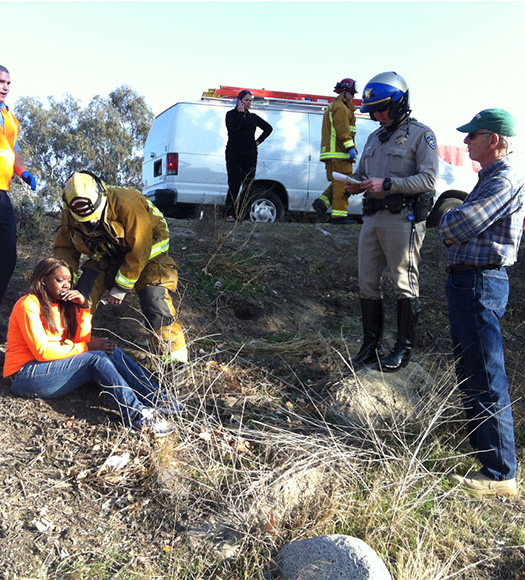Why legal video depositions are redefining modern courtroom strategies
Wiki Article
The Importance of Legal Video Clip Depositions in Modern Legal Solutions: What You Ought to Know
Legal video depositions have come to be vital in today's lawful landscape. They give a multidimensional view of witness testimonies that traditional records just can not match. By catching both non-verbal and verbal interaction, these depositions enhance the total understanding of a witness's reputation. The efficiency of video clip depositions hinges on different variables, including conformity with legal standards and best techniques. Discovering these elements reveals their true value in contemporary legal servicesWhat Are Legal Video Clip Depositions?
Legal video clip depositions work as an important tool in the lawsuits process. They entail recording witness statements in a video clip layout, recording both verbal and non-verbal interaction. This method enables lawyers to record the demeanor, expressions, and reactions of witnesses, providing a richer context for the testament. Commonly carried out in a regulated setting, these depositions are led by lawyers that ask inquiries while a stenotype reporter documents the discussion. The resulting video can be critical for trial preparation, as it makes it possible for legal representatives to examine the reputation of witnesses and fine-tune their techniques. In addition, lawful video depositions can be used in numerous legal contexts, varying from civil conflicts to criminal cases. The acoustic and visual components of video depositions enhance the discussion of proof, making it an essential component in the modern-day lawful landscape. On the whole, they add substantially to the performance and effectiveness of lawful proceedings.
Advantages of Video Clip Depositions Over Typical Methods
Video depositions use many benefits contrasted to typical techniques of taking witness testimonies. One substantial advantage is the capability to capture both visual and audio components, giving an extra thorough document of the witness's statements. This dual format improves quality and allows attorneys to reference certain nuances during test prep work. Furthermore, video depositions assist in remote engagement, making it simpler for witnesses that may be not available for in-person appearances because of geographical restraints or wellness issues.Moreover, video clip depositions can speed up the general deposition procedure, reducing the moment and costs related to travel and logistics. They additionally improve availability, as taped depositions can be conveniently shared amongst legal groups and referenced any time. This comfort contributes to much better situation monitoring and prep work. In general, video depositions represent a modern-day, reliable approach to collecting witness testimonies, straightening with the progressing demands of the legal career.The Function of Body Movement and Tone in Testimonies

In lawful video depositions, body movement and tone play crucial roles in sharing a witness's trustworthiness and trustworthiness. Nonverbal cues can provide understandings into a witness's emotion, influencing how their statement is viewed. Recognizing the effect of these components is necessary for lawyers and jurors alike when assessing the integrity of a statement.
Nonverbal Communication Insights
While spoken interaction is often emphasized in legal statements, nonverbal hints such as body movement and tone play an important function in conveying reputation and emotion. Onlookers of depositions may keep in mind that a witness's position, motions, and face expressions can considerably influence assumptions of integrity. Regular eye contact may signal confidence, while preventing gaze could suggest deceit or discomfort. The tone of voice-- its pace, volume, and pitch-- can give feelings of genuineness or uncertainty. Lawyers should be attuned to these nonverbal signals, as they typically supply important context that enhances spoken words. Comprehending these subtleties can improve the efficiency of depositions and influence the result of lawful proceedings.Emotional Tone Impact
The psychological tone shared throughout legal statements significantly affects how a witness is regarded. Body movement, vocal inflections, and faces play essential functions fit the story of a testament. A witness displaying confidence through steady eye call and a tranquil tone can infuse a sense of reliability and interaction. Alternatively, signs of stress and anxiety, such as fidgeting or an unstable voice, might bring about suspicion concerning their account. The subtleties of emotional expression can affect the analysis of truths, making it important for lawyers to acknowledge these hints. In video clip depositions, the visual and acoustic parts incorporate, highlighting the relevance of psychological tone in conveying genuineness and truthfulness within the lawful procedure.Reputation and Dependability
An important aspect in establishing reliability and reliability during testaments depends on the witness's body movement and tone of voice. Onlookers often depend on non-verbal hints-- such as eye get in touch with, position, and motions-- to analyze a witness's sincerity. A witness that maintains eye contact and displays open body language may be regarded as more reputable and honest than one that prevents eye get in touch with or shows up closed off. In addition, intonation plays a necessary function; a consistent, calm tone can reinforce the credibility of the testimony, while variations in pitch or volume might elevate uncertainties. Ultimately, the mix of body movement and singing tone greatly affects just how a witness's statements are received and analyzed in a lawful context.Finest Practices for Performing Video Clip Depositions
Conducting video depositions calls for mindful preparation and implementation to guarantee a clear and efficient presentation of testimony. First, it is essential to pick a peaceful, well-lit place to decrease disturbances and protected ideal video clip quality. The tools ought to be evaluated in breakthrough, consisting of cams, microphones, and illumination, to stay clear of technological concerns throughout the deposition.Next, celebrations entailed must assess the format and procedures in advance, making certain that everyone recognizes their roles. The deponent needs to be briefed on the procedure, including how to react clearly and concisely.Additionally, maintaining a specialist disposition throughout the session is crucial. This includes avoiding talking over each other and confirming that all inquiries are directed properly. Lastly, it is critical to videotape the deposition in a style that permits simple playback and review, preserving the honesty of the testimony for future use.Legal Factors To Consider and Compliance Issues
How do legal considerations and conformity issues impact the performance of video clip depositions? Lawyers have to navigate a complicated landscape of guidelines, making certain that video depositions abide by administrative policies and standards. Conformity with regulations concerning privacy, consent, and tape-recording techniques is essential. Getting explicit approval from all parties entailed is necessary to stay clear of lawful repercussions.Additionally, the admissibility of video clip evidence in court can pivot on conformity with procedural requirements. Making sure that the equipment made use of meets technological criteria is additionally important, as inadequate quality can weaken the deposition's reliability.Moreover, lawyers must know any type of particular state laws that control video depositions, as these can vary substantially. Failing to deal with these directory factors to consider can not just endanger the honesty of the deposition but likewise influence the overall instance approach, inevitably affecting the client's lawful results.How Video Depositions Influence Court Perception
While video clip depositions can function as powerful devices in legal proceedings, their impact on court perception is significant. The aesthetic and acoustic elements of video clip recordings supply jurors with a much more extensive understanding of witness attitude, reputation, and psychological reactions. This multimedia method can boost the jurors' ability to examine the integrity of testament contrasted to conventional text-based transcripts.Moreover, video depositions enable jurors to observe body movement, tone of voice, and facial expressions, every one of which can affect their interpretation of the witness's statements. The visibility of a witness on display can humanize them, cultivating compassion and link, which may persuade jurors' point of views. Alternatively, a witness who shows up unreliable or incredibly elusive on video clip may cause adverse understandings that affect a jury's decision. Inevitably, the dynamic nature of video depositions plays an essential role in forming just how jurors analyze evidence and reach their judgments.The Future of Video Depositions in Legal Technique
As developments in modern technology continue to improve the legal landscape, the future of video depositions is poised for considerable advancement. Advancements such as fabricated intelligence, online fact, and enhanced video clip conferencing tools are anticipated to simplify the deposition process and improve availability. Lawful professionals might make use of AI-driven analytics to examine witness reputation and case strength a lot more effectively.Moreover, the combination of digital reality could permit juries to experience immersive simulations of depositions, giving Clicking Here deeper context and understanding. Furthermore, the pattern toward remote depositions is most likely to linger, providing greater adaptability for clients and lawyers alike.As remote work comes to be increasingly stabilized, video clip depositions will likely end up being standard technique, reducing costs and time restrictions connected with conventional techniques. Overall, these technological developments assure to improve the performance, performance, and ease of access of video clip depositions in legal practice, eventually changing how legal professionals plan for trial.Regularly Asked Questions
Just How Much Do Legal Video Clip Depositions Usually Price?

Can Video Clip Depositions Be Used in Any Kind of Case?
Video depositions can be used in various sorts of situations, consisting of civil, criminal, and household legislation. Their flexibility enables attorneys to existing witness statements effectively, adjusting to the particular needs of various lawful scenarios.What Tools Is Needed for a Video Deposition?
To conduct a video clip deposition, vital equipment consists of a high-quality cam, microphone, illumination, and a reliable recording tool. Additionally, a computer with editing software might be needed for post-production and formatting the final video clip.For how long Does a Regular Video Deposition Last?
A typical video clip deposition lasts between 2 to 4 hours, depending on the complexity of the instance and the variety of inquiries presented. Extended sessions may happen, yet breaks are typically included for individual convenience.

Are Video Clip Depositions Admissible in Court?
Video clip depositions are web normally admissible in court, given they stick to legal requirements and policies of evidence. Their usage enhances clarity and protects witness testimony, assisting in the judicial procedure during hearings and trials. Lawful video clip depositions have actually ended up being important in today's lawful landscape. Furthermore, legal video clip depositions can be used in different legal contexts, varying from civil conflicts to criminal instances. Additionally, video clip depositions help with remote engagement, making it much easier for witnesses that may be inaccessible for in-person appearances due to geographical constraints or health issues.Moreover, video depositions can expedite the overall deposition process, minimizing the time and costs linked with travel and logistics. Making sure that the tools utilized fulfills technological standards is also vital, as poor quality can undermine the deposition's reliability.Moreover, attorneys have to be aware of any type of specific state laws that govern video clip depositions, as these can vary greatly. Furthermore, the fad towards remote depositions is most likely to linger, using higher adaptability for lawyers and clients alike.As remote job ends up being significantly stabilized, video depositions will likely come to be basic technique, minimizing costs and time constraints associated with traditional techniques.Report this wiki page